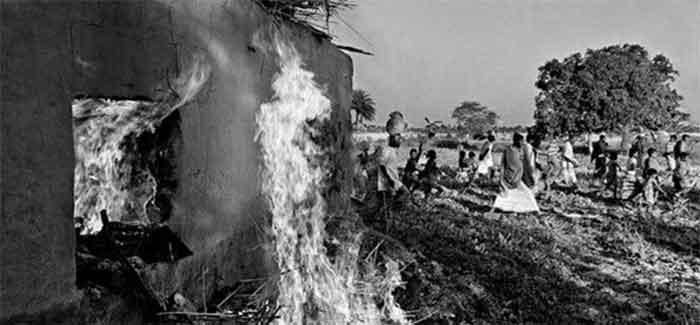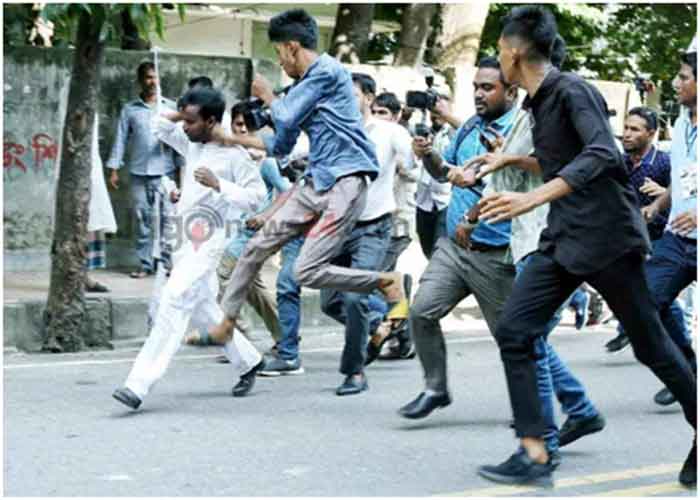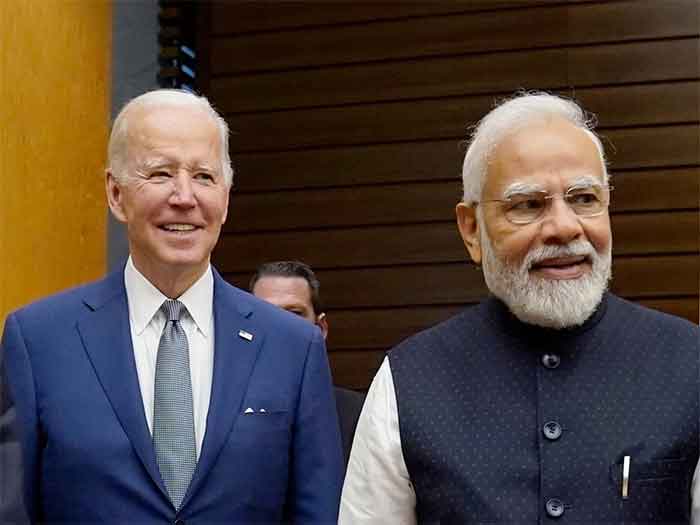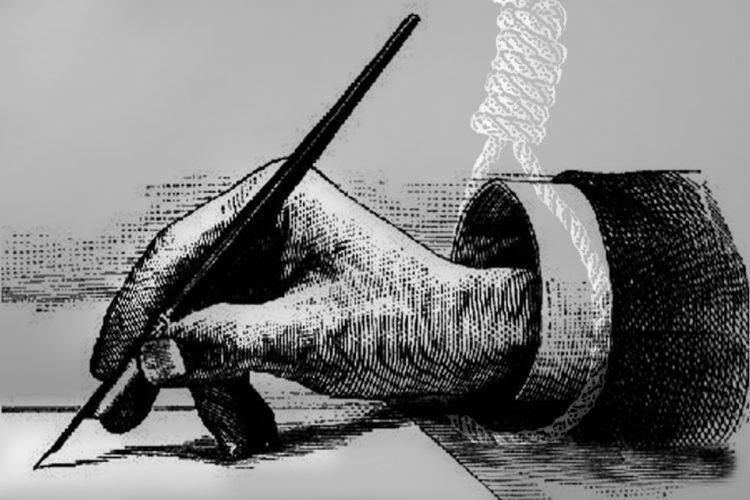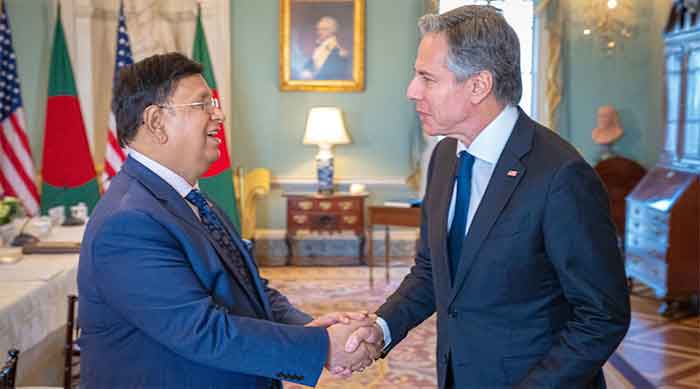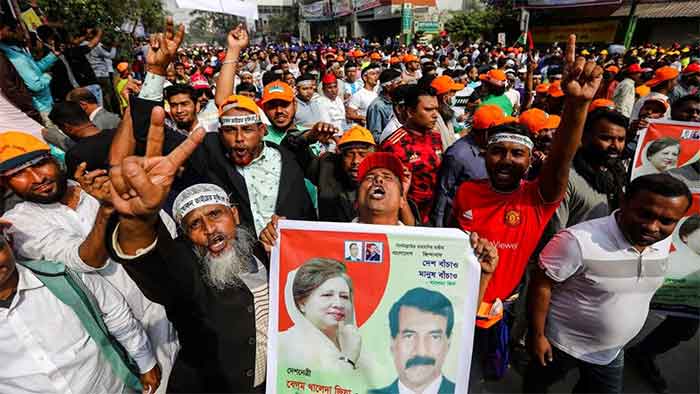
Within hours, Bangladesh will begin celebrating that hour of victory – December 16, 1971 – that marks one of the glorious moments in the Bangladesh people’s history of bravery, struggle, sacrifice, setbacks, torment and triumphs. Half a century has passed since that victory of defeating a neo-colonial state – Pakistan.
On December 16, 1971, The Bangladesh people heroically compelled the occupying Pakistan army to accept a humiliating surrender – a humiliation that’s impossible to bear by any state machine. An entire part of the Pakistan army, about one hundred-thousand in number, occupying Bangladesh surrendered.
That abasing incident still haunts that army that propagated for decades to the taxpayers of the Pakistan state that that army is “indomitable”. On the opposite, the Bangladesh people were pictured as “idle”, “worthless”, “physically weak”, “coward”, and “born to be ruled” – a myth rulers like to propagate. The propaganda was part of the rulers’ psychological-cultural war against the Bangladesh people. This was also propagated by the British imperialists colonizing this land. The Bangladesh people busted the myth, and presented contrary evidence – the people stood with might and courage, and in victory.
The military machine that carried out genocide for nine months – from March 25, 1971 to December 15, 1971 – crumbled down to dust. The military bosses always posed as “smart”, “brave” and “war-efficient”.
But, on that day mortifying the “brave” army – December 16, 1971 – the bosses appeared dumb and timid as they silently bowed down to lay their personal arms on the ground. That was a scene of a bunch of military officers without badges, revolvers, etc. – a scene of humiliation of a mighty military machine, and a scene of triumph of a courageous people with experience of humbling down the neo-colonial state.
The main part of the act of surrender was in Dhaka, at the Race Course, today Suhrawardy Uddaan (park). But the entire country witnessed the act of surrender in all its parts – from north to south to east to west – during those December days. Jashore, once spelled as Jessore, in the west-south part, was the first district to be liberated from the occupying Pakistan forces. That was on December 6, 1971. However, many parts of the country, vast stretches of land and localities, were liberated earlier; and, valiant freedom fighters and people supporting them kept free many corners/pockets of the country from the occupying forces throughout the nine-month of armed struggle.
The Bangladesh people’s 1971-armed struggle against the neo-colonial state was exemplary during that period in global perspective. The neo-colonial state was fully backed by the most powerful empire in human history – the US. All sorts of imperialist political, diplomatic and military support to Pakistan were there. The Cold War was in full force. To imperialism, the Bangladesh people’s War for Liberation in 1971 turned into an act of opposition to imperialism’s geostrategy/geotactics. Moreover, the liberation war was hitting imperialism’s lackey – Pakistan – with its geostrategic/geotactical position.
Pakistan was member of SEATO (South-East Asia Treaty Organization) and CENTO (Central Treaty Organization, once the Baghdad Pact or Middle East Treaty Organization). With the emergence of Bangladesh, and with imperialism’s defeat in Vietnam-Laos-Cambodia, SEATO withered away. Political developments, to be definite, peoples’ wars are more powerful than imperialism’s geostrategy. With the fall of Shah and the rise of the Ayatollahs in Iran, the CENTO lost is relevance. This perspective related to imperialism is one of the major aspects connected to the emergence of Bangladesh.
The universal aspiration of the Bangladesh people was exploitation-free society. This development was evident since the 1969-Mass Upsurge – countrywide public participation in political struggle. The extent and force of public participation in political activities were unprecedented in the country since August-1947, the time it was made part of the Pakistan state. In rural and urban areas, poor peasantry, industrial workers, wide parts of the middle class, intellectuals, cultural activists and students got engaged with political activities including agitation, blockade, chasing away political operatives of the neo-colonial rulers from rural areas, encircling of factories and other enterprises in industrial and cities. The mass movement overthrew the then dictatorial regime.
The major demands that emerged during the mass movement were autonomy, democracy, secular society, universal franchise, elimination of inequality, nationalization of major industries, public health care and education, stop accepting imperialist food “aid”, and move out of imperialist military pacts. The slogan “Socialism” gained widespread popularity. Two slogans were noteworthy during the upsurge: Keu khaabe, keu khaabe naa, taa habe naa, taa habe naa (No to the system with people going hungry while a section indulges in luxury) and Tomaar aamaar mantra, samaajtantra, samaajantra (Our goal is socialism). It was a significant advancement in mass politics.
This mass aspiration for socialism was impossible to deny by all political forces standing with the Bangladesh people. During the War for Liberation, the Bangladesh Government in-exile declared socialism as one of the basic principles of the new state – Bangladesh.
However, fundamental questions related to organizing a system of socialism went unresolved, which was quite natural in view of the dominating socio-political forces with their class connections/economic interests. Gaps persisted between pronouncements and practices.
Same remained most of the class contradictions. The capital that could take hold of the political scene had its characteristics, capacity, origin and history.
The economy that experienced the war was devastated, almost ruined – a “gift” of the occupying force. Classes/segments were in disarray, demobilized. Capital was getting organized from the initial days with legal and illegal methods and tricks; illegal according to the limit of law the capital pronounced.
At the same time, imperialism was inserting its hands into affairs of the country since the country’s emergence. It impacted the political stage. Blood spilled.
Capital successfully organized itself – enlarging its size, widening its claws, tightening its grips, increasing size of chained labor. Labor was engaged in new areas to produce surplus value. Capital’s political power got more organized, more efficient, trickier. This condition of labor and capital is reflected in politics and society, in urban and rural areas, in dominating ideology and culture.
A fundamental question in Bangladesh is ties with and role of imperialism. Over the gone half a century, imperialism has worked to tighten its grip and shape politics in Bangladesh, and to entangle the country into imperialist geostrategy. This impacts a lot of issues in Bangladesh politics.
A major aspect of Bangladesh is the non-governmental organizations having their role in economy and politics. It was a faithful service to the world capitalist order. There was demobilizing a significant part of left activists, occupying a significant part of debate and space of activism camouflaging fundamental questions related to capital, labor and imperialism.
Startling is advancements Bangladesh has made in different areas of socio-economy. Many countries with capital older than Bangladesh now trail behind Bangladesh. The way Bangladesh has handled a few issues, and is handling some other issues is exemplary. At the beginning of the country’s journey, this Bangladesh was characterized as a basket case. A shameful prediction was that.
With these advancements, questions related to capital and labor arise with much force; questions related to class struggle don’t die, rather, these appear with much strength. With these advancements, questions related to imperialism come out, which is today connected to imperialist geostrategy/war plan, and to the masses of people, to people’s politics and democracy.
Unresolved questions are there. These are related to economy and politics, to production and distribution, to participation, command and decision making, to the commons including environment and ecology.
Note: This is part of a longer article.
Farooque Chowdhury writes from Dhaka, Bangladesh.

